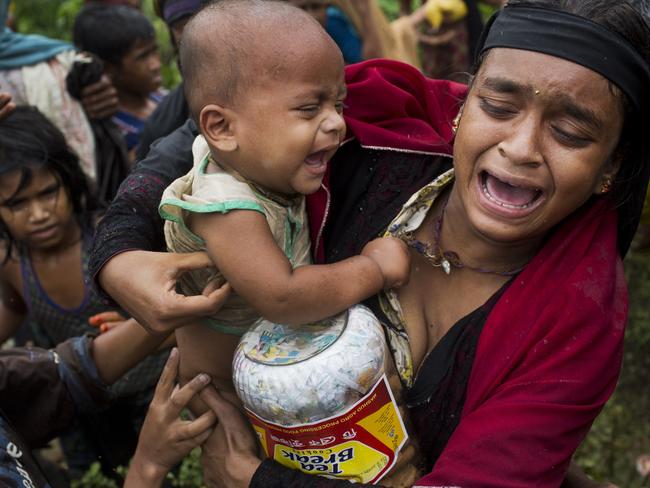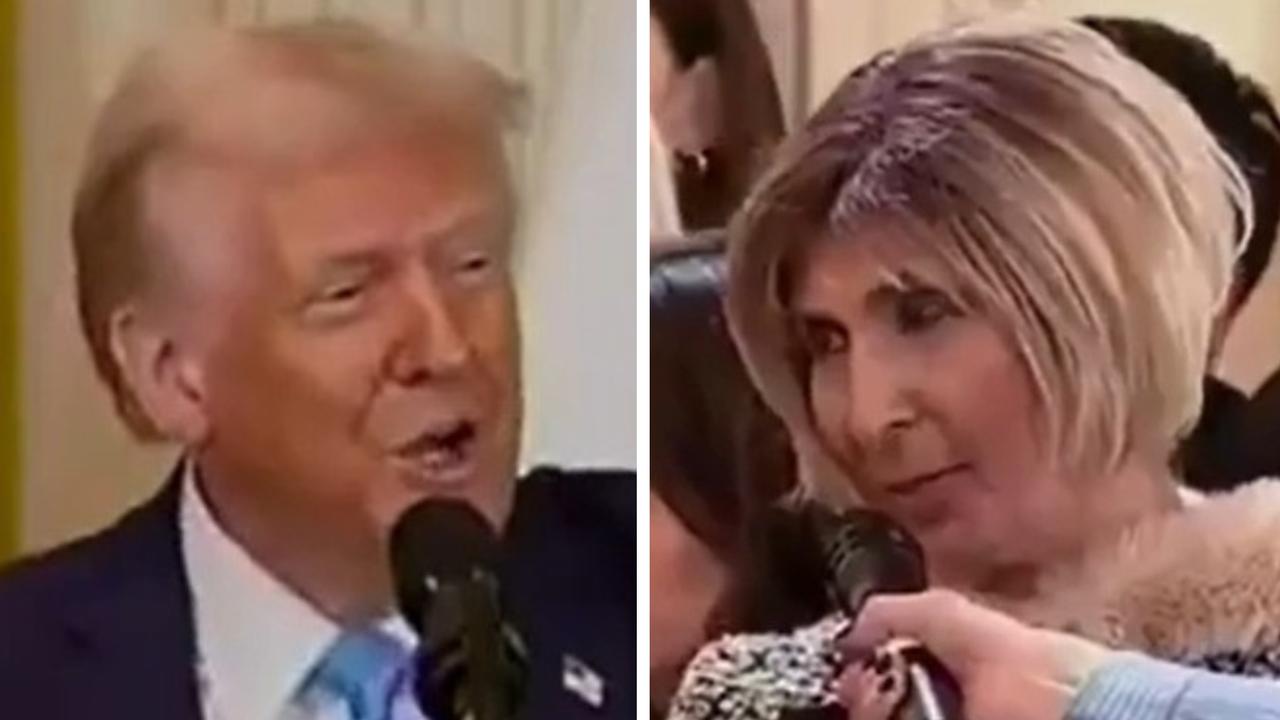Desmond Tutu to Aung San Suu Kyi: Save the Rohingya in Myanmar
WRITTEN from one Nobel Peace prize winner to another, this brutally honest, but powerful letter shows how diplomacy should be done.
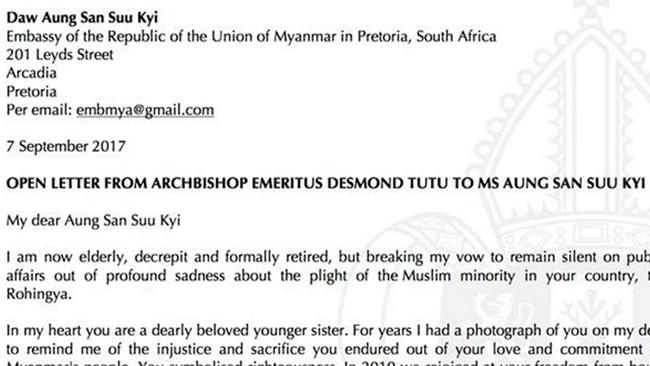
FORMER Nobel Peace laureate Desmond Tutu has penned a powerful open letter to one of the most well-known winners of the prize.
And the world has sat up and noticed.
The archbishop wrote the letter to his dear friend and fellow Nobel laureate Aung San Suu Kyi on his Facebook page, calling on her to help end the persecution of Myanmar’s Rohingya minority.
In the letter, the 85-year-old writes how he was forced to break his “vow to remain silent on public affairs out of profound sadness about the plight of the Rohingya”.
The letter has been widely shared on social media since it was published on September 8 with many calling for Suu Kyi to do more to stop the violence.
It also comes just two days before the release of a damning new report which accuses the military of further fuelling the attacks against the Rohingya.
Released by human rights group Amnesty International, the report claims Myanmar’s military has once again deliberately targeted Rohingya refugees by mining border crossings used by those fleeing the violence.
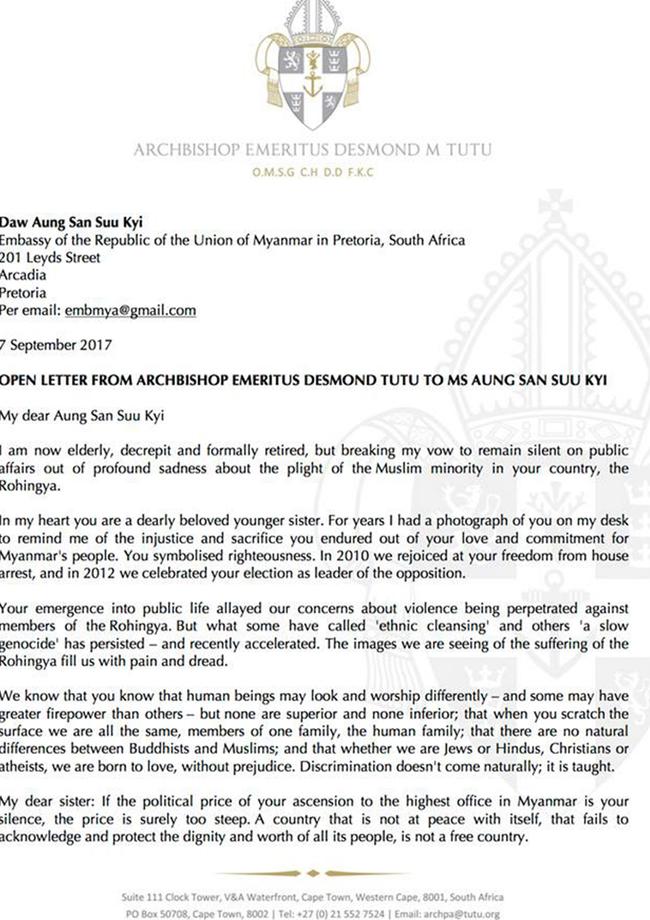
‘PRICE IS TOO HIGH’
In Tutu’s letter he reveals how he regards Suu Kyi as a sister and used to keep a photo of her on his desk to remind him of the sacrifice she made for her own people.
“Your emergence into public life allayed our concerns about violence being perpetrated against members of the Rohingya,” he continues.
“But what some have called ‘ethnic cleansing’ and others ‘a slow genocide’ has persisted — and recently accelerated.”
Mr Tutu, who gained worldwide attention for his fight against apartheid, appealed to his friend to do more for the Rohingya, adding all humans look and worship differently but are essentially the same.
Reminding her of her own climb to freedom, Tutu said she could no longer stand by and do nothing.
“My dear sister: If the political price of your ascension to the highest office in Myanmar is your silence, the price is surely too steep,” he continues.
“A country that is not at peace with itself, that fails to acknowledge and protect the dignity and worth of all its people, is not a free country.”
WHO ARE THE ROHINGYA? THE CRISIS THE WORLD’S IGNORING
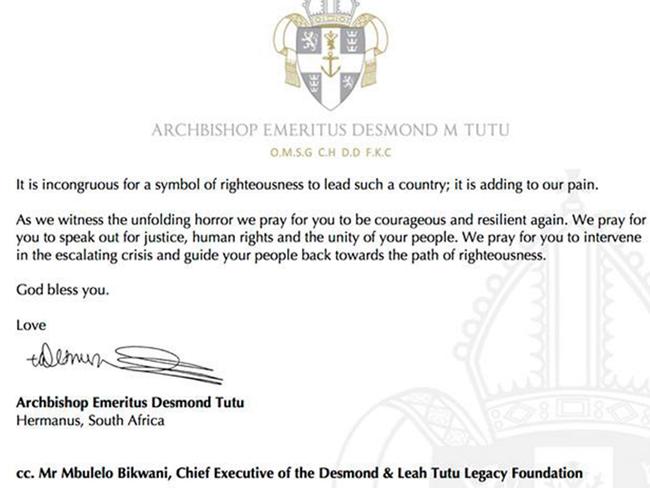
Mr Tutu officially retired from public life in 2010 but has continued to be an active voice on social justice and human rights issues.
His letter didn’t go unnoticed with many social media users commenting they hoped it would spark Suu Kyi into taking action.
"..human beings may look & worship differently; but none are superior & none are inferior." Desmond Tutu's open letter to Ann San Suu Kyi pic.twitter.com/QJK2WwdBzv
— Ansu (@nfansu) September 8, 2017
Hopefully not. Perhaps Rev Tutu's letter will remind her of her better self & that everyone deserves to be treated equally and with respect
— Patricia Scanlan (@patriciascanl18) September 10, 2017
Read the #Nobel laureate #Desmond_Tutu's heartfelt letter to fellow peace prize winner Aung San Suu Kyi,... https://t.co/sOs90O9WF3
— Farshid Faryabi (@Farshid_Faryabi) September 10, 2017
Tutu is not the only Nobel laureate to call for an end to the violence and for the Myanmar leader to do more.
Women and girls’ activist Malala Yousafzai released a statement last week expressing her disappointment with Suu Kyi.
My statement on the #Rohingya crisis in Myanmar: pic.twitter.com/1Pj5U3VdDK
— Malala (@Malala) September 3, 2017
‘FAKE INFORMATION’
Once regarded as the face of democracy in Myanmar, Suu Kyi has come under global pressure to help the persecuted in her own country.
Suu Kyi was released from house arrest in 2010 and in 2012 was elected as leader of the opposition.
However, she has been criticised for not doing enough to help the Rohingya since her election victory.
Myanmar’s defacto leader claimed last week all isn’t what it seemed with the crisis which has caused 300,000 people to flee the country in recent days.
In her first comments since Rohingya militant attacks sparked further unrest on August 25, Suu Kyi said fake news was “calculated to create a lot of problems between different communities” and to promote “the interest of the terrorists”.
Suu Kyi slammed the “fake information” spread on Twitter earlier this month by the Turkish deputy prime minister who shared photos purporting to be dead Rohingya that were later proven not to relate to the current crisis.
“Terrorism is new (for Myanmar) but the Government will do its best to make sure that this does not expand and spread all over Rakhine,” she was quoted as saying.
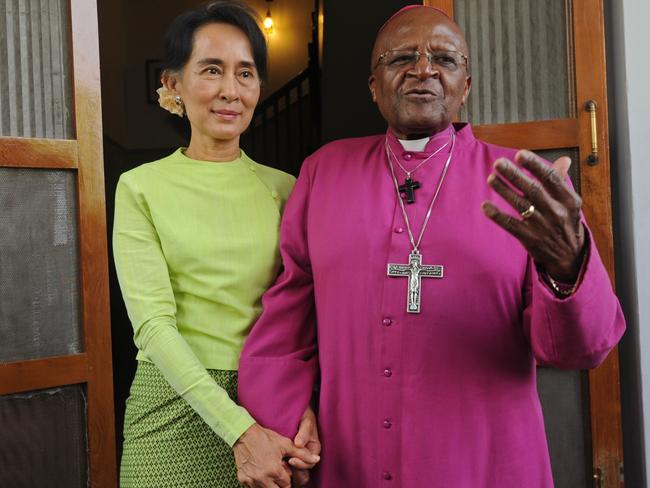
BRUTAL ESCAPE
In its new report, Amnesty released a blistering attack on Myanmar’s military, accusing it of planting landmines in the path of Rohingya Muslims fleeing violence in its western Rakhine state.
Reporters from the Associated Press reporters on the Bangladesh side of the border saw an elderly woman with devastating leg wounds: one leg with the calf apparently blown off and the other also badly injured.
Relatives said she had stepped on a landmine.
Myanmar has one of the few militaries, along with North Korea and Syria, which has openly used antipersonnel landmines in recent years, according to Amnesty.
Based on interviews with eyewitnesses and analysis by its own weapons experts, Amnesty said it believes there is “targeted use of landlines” along a narrow stretch of the northwestern border of Rakhine state that is a crossing point for fleeing Rohingya.
“All indications point to the Myanmar security forces deliberately targeting locations that Rohingya refugees use as crossing points,” Amnesty official Tirana Hassan said.
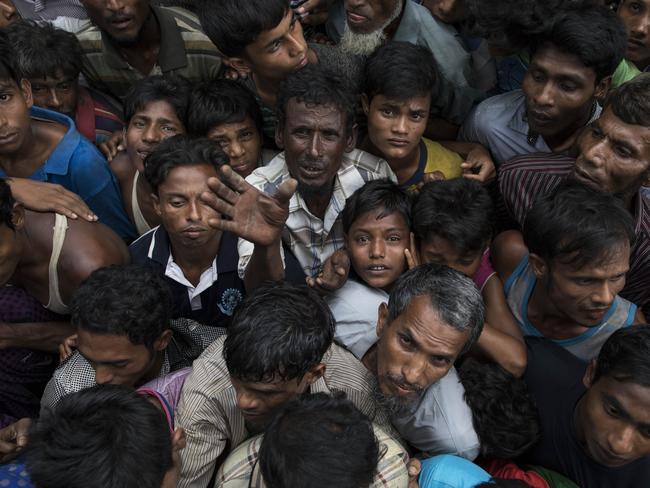
VIOLENCE FLARES
The violence and exodus last month after Rohingya insurgents attacked Myanmar police and paramilitary posts in what they said was an effort to protect their ethnic minority from persecution by security forces in the majority Buddhist country.
The military unleashed what it called “clearance operations” to root out the insurgents in response.
Accounts from refugees show the Myanmar military is also targeting civilians with shootings and wholesale burning of Rohingya villages in an apparent attempt to purge Rakhine state of Muslims.
Bloody anti-Muslim rioting that erupted in 2012 in Rakhine state forced more than 100,000 Rohingya into displacement camps in Bangladesh, where many still live today.
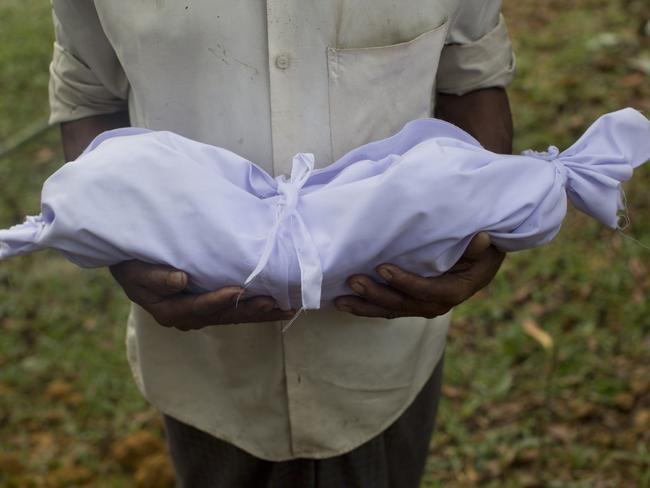
ETHNIC CLEANSING
Human Rights Watch said the military campaign amounted to ethnic cleansing.
It said Burmese government security forces carried out armed attacks on villagers, inflicted bullet and shrapnel injuries, and burned down homes.
Also called Burma, the ruling military junta changed the country’s name to Myanmar in 1989.
The (Myanmar) government considers the Rohingya, most of whom live in northern Rakhine State, to be foreign nationals from Bangladesh.
Around one million live in Myanmar and the Rohingya make up a large portion of the country’s relatively small Muslim population.
HRW said the Rohingya have long faced systematic discrimination due to being excluded from citizenship under a 1982 law.
“As a result, the Rohingya are one of the largest stateless populations in the world,” it said.
- with AP
